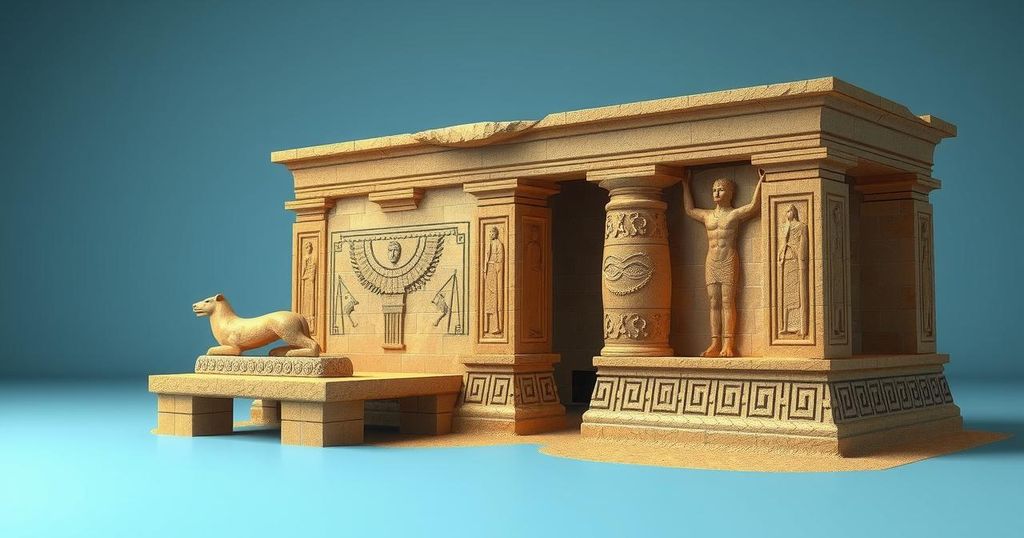Ancient Egyptians: Strategies for Climate Resilience Unearthed

Archaeological discoveries suggest ancient Egyptians had sophisticated methods to prepare for droughts, emphasized through recent research by Tel Aviv University. They increased grain production and adapted livestock to mitigate the impacts of a severe drought that contributed to the Bronze Age Collapse, illustrating the link between climate change and societal stability throughout history.
Recent archaeological findings indicate that ancient Egyptians exhibited advanced strategies for drought preparedness, particularly through excavations in Israel, focused on Megiddo and the Sea of Galilee. Researchers from Tel Aviv University, publishing in the journal Egypt and the Levant, revealed that Pharaohs implemented measures to escalate grain production in fertile regions and bred resilient cattle adapted to arid environments. During the Late Bronze Age, a severe drought from 1250 to 1100 B.C.E. devastated the MENA region, leading to crop and livestock failures that crippled Egypt’s economy, echoing through the societal fabric of the time. The drought was a contributing factor to the Bronze Age Collapse, a period that saw the deterioration of several thriving communities across the Mediterranean, including the Egyptians and Mycenaeans, and marked the emergence of Iron Age territorial kingdoms such as Israel and Judah. This crisis highlighted the vulnerabilities of agrarian societies reliant on river systems, such as the Nile, which sustained their agricultural economy. In light of these historical precedents, modern scholars draw parallels to contemporary climate challenges, underscoring the alarmingly recurring implications of climate-induced agricultural failures.
The Late Bronze Age is noted for its wealth of interconnected cultures that flourished around the Mediterranean and Near East, including the Egyptians, Babylonians, Minoans, and Mycenaeans. The severe drought that struck during this period significantly impacted agriculture, which was foundational to these civilizations. Archaeologists and climate scientists have explored these ancient societies to understand how they responded to climate crises, especially concerning food production and societal stability, which may offer insights into our current climate change challenges.
The research reveals that ancient Egyptians not only identified potential drought threats but also proactively adapted through agricultural innovations and resource management strategies. The significant climatic shifts during the Late Bronze Age culminated in widespread societal collapse, underscoring the grave consequences of environmental changes on civilizations. As modern societies confront similar climatic challenges, the lessons derived from these ancient practices could inform sustainable strategies in addressing today’s environmental crises.
Original Source: knewz.com






